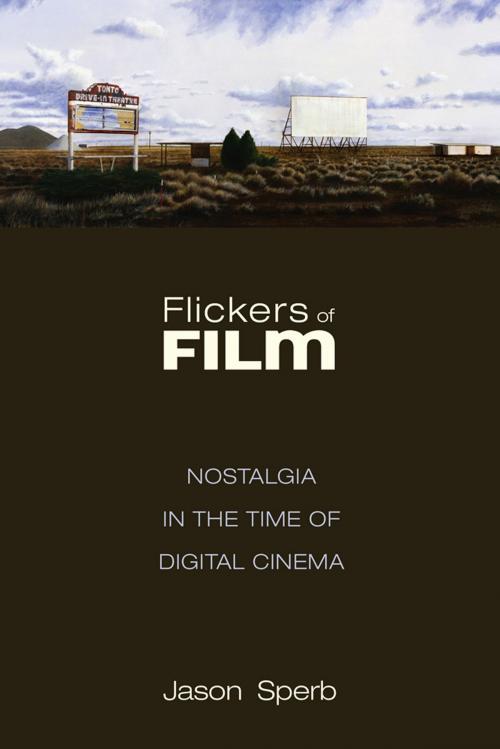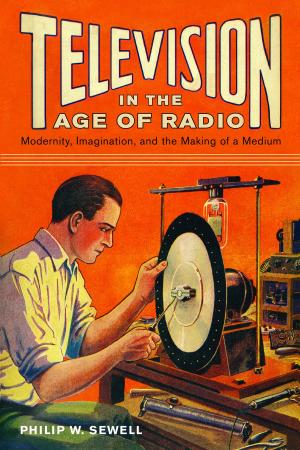Flickers of Film
Nostalgia in the Time of Digital Cinema
Nonfiction, Entertainment, Film, History & Criticism, Performing Arts| Author: | Jason Sperb | ISBN: | 9780813576039 |
| Publisher: | Rutgers University Press | Publication: | December 15, 2015 |
| Imprint: | Rutgers University Press | Language: | English |
| Author: | Jason Sperb |
| ISBN: | 9780813576039 |
| Publisher: | Rutgers University Press |
| Publication: | December 15, 2015 |
| Imprint: | Rutgers University Press |
| Language: | English |
Whether paying tribute to silent films in Hugo and The Artist or celebrating arcade games in Tron: Legacy and Wreck-It-Ralph, Hollywood suddenly seems to be experiencing a wave of intense nostalgia for outmoded technologies. To what extent is that a sincere lament for modes of artistic production that have nearly vanished in an all-digital era? And to what extent is it simply a cynical marketing ploy, built on the notion that nostalgia has always been one of Hollywood’s top-selling products?
In Flickers of Film, Jason Sperb offers nuanced and unexpected answers to these questions, examining the benefits of certain types of film nostalgia, while also critiquing how Hollywood’s nostalgic representations of old technologies obscure important aspects of their histories. He interprets this affection for the prehistory and infancy of digital technologies in relation to an industry-wide anxiety about how the digital has grown to dominate Hollywood, pushing it into an uncertain creative and economic future. Yet he also suggests that Hollywood’s nostalgia for old technologies ignores the professionals who once employed them, as well as the labor opportunities that have been lost through the computerization and outsourcing of film industry jobs.
Though it deals with nostalgia, Flickers of Film is strikingly cutting-edge, one of the first studies to critically examine Pixar’s role in the film industry, cinematic representations of videogames, and the economic effects of participatory culture. As he takes in everything from Terminator: Salvation to The Lego Movie, Sperb helps us see what’s distinct about this recent wave of self-aware nostalgic films—how Hollywood nostalgia today isn’t what it used to be.
Whether paying tribute to silent films in Hugo and The Artist or celebrating arcade games in Tron: Legacy and Wreck-It-Ralph, Hollywood suddenly seems to be experiencing a wave of intense nostalgia for outmoded technologies. To what extent is that a sincere lament for modes of artistic production that have nearly vanished in an all-digital era? And to what extent is it simply a cynical marketing ploy, built on the notion that nostalgia has always been one of Hollywood’s top-selling products?
In Flickers of Film, Jason Sperb offers nuanced and unexpected answers to these questions, examining the benefits of certain types of film nostalgia, while also critiquing how Hollywood’s nostalgic representations of old technologies obscure important aspects of their histories. He interprets this affection for the prehistory and infancy of digital technologies in relation to an industry-wide anxiety about how the digital has grown to dominate Hollywood, pushing it into an uncertain creative and economic future. Yet he also suggests that Hollywood’s nostalgia for old technologies ignores the professionals who once employed them, as well as the labor opportunities that have been lost through the computerization and outsourcing of film industry jobs.
Though it deals with nostalgia, Flickers of Film is strikingly cutting-edge, one of the first studies to critically examine Pixar’s role in the film industry, cinematic representations of videogames, and the economic effects of participatory culture. As he takes in everything from Terminator: Salvation to The Lego Movie, Sperb helps us see what’s distinct about this recent wave of self-aware nostalgic films—how Hollywood nostalgia today isn’t what it used to be.















